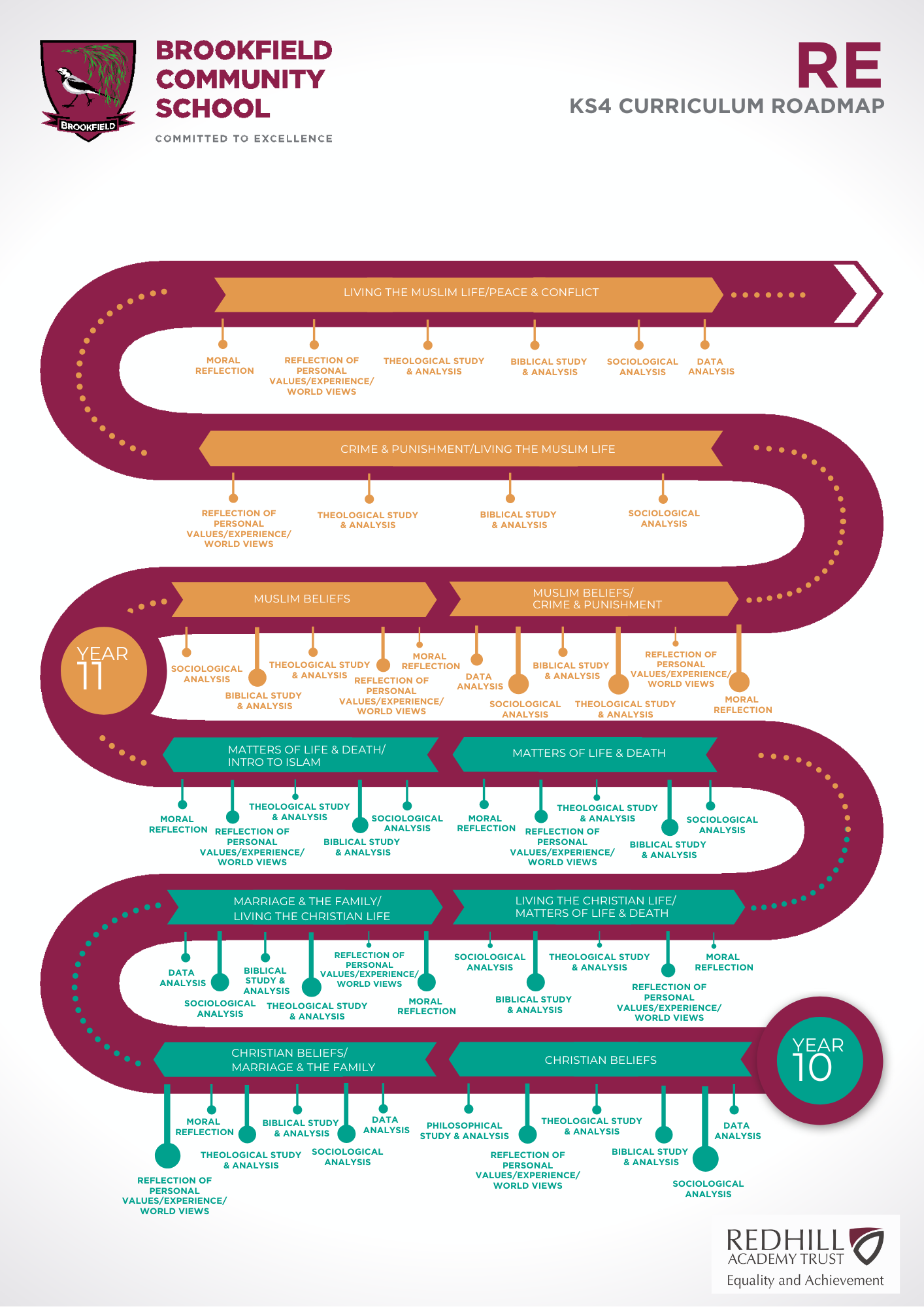GCSE Religious Education
In this GCSE course we will study two religions: Christianity and Islam. It is not necessary for a student to be ‘religious’. Topics covered across the two year course include: Crime and punishment, peace and conflict, marriage and the family and matters of life after death.
Two components will be studied:
Year 10
- Christianity - Christian beliefs
- Christianity - Living the Christian life
- Christianity - Marriage and the family
- Christianity - Matters of life and death
Year 11
- Islam - Muslim beliefs
- Islam - Crime and punishment
- Islam - Living the Muslim life
- Islam - Peace and conflict
Assessment:
AO1
Demonstrate knowledge and understanding of religion and belief, including:
- Beliefs, practices and sources of authority
- Influence on individuals, communities and societies
- Similarities and differences within and/or between religions and beliefs.
AO2
- Analyse and evaluate aspects of religion and belief, including their significance and influence.
There are two examination papers. Both of these papers are one hour and forty five minutes in length with four compulsory questions on each paper. There is no coursework or controlled assessment.
Further Education and Career Opportunities:
A GCSE in Religious Studies is welcomed by colleges and universities because of the higher level thinking skills it cultivates. These include: analysing, synthesising and reasoning skills. The areas of study span a wide range of mature and interesting topics that are relevant and engaging. It is useful for a variety of career pathways and choices including: Teaching in Primary, Secondary and Higher Education, the Civil Service including the Police Force, Medicine and caring professions.
Examining Board:
Edexcel
Contact:
Ms Capey


